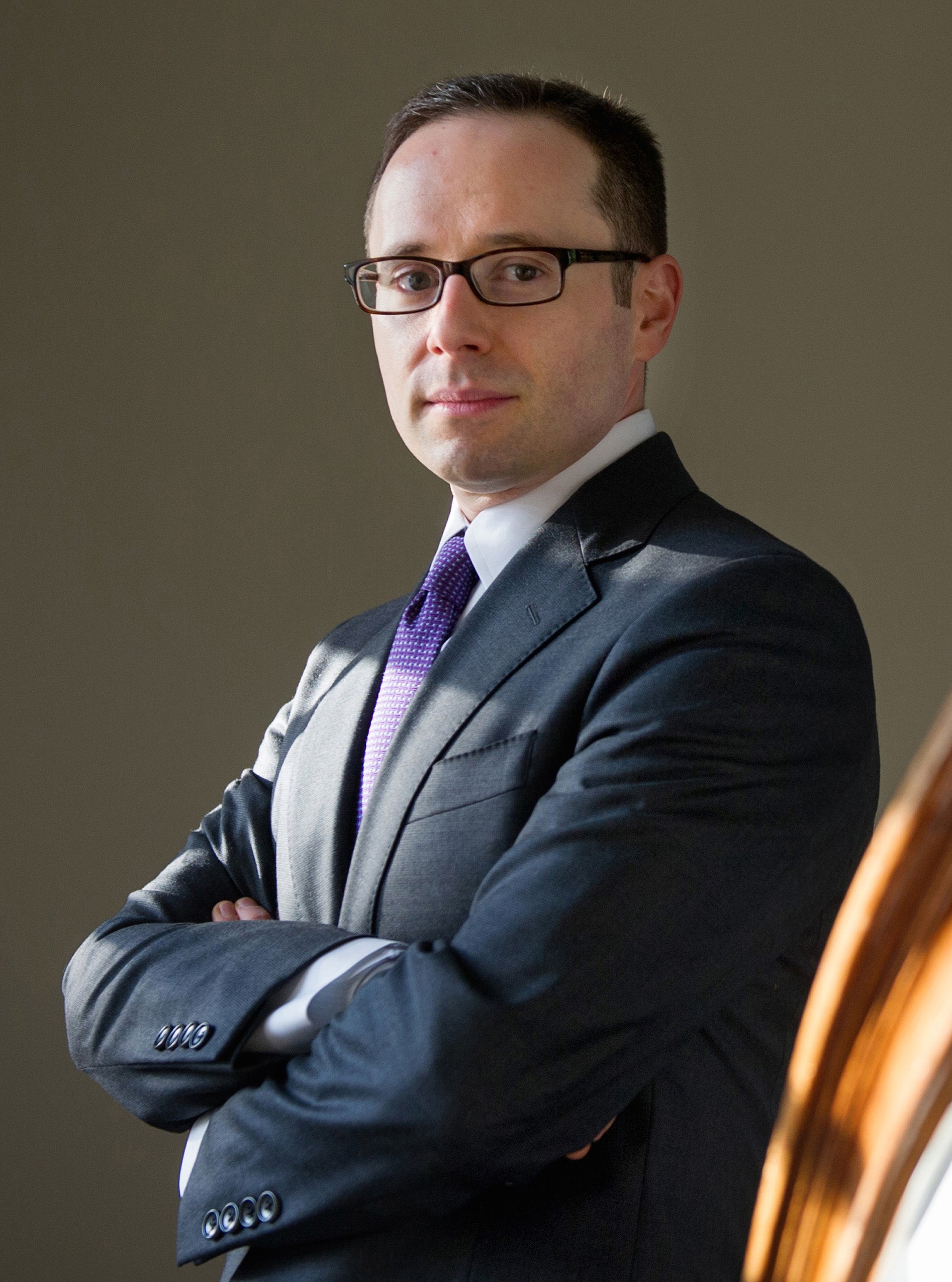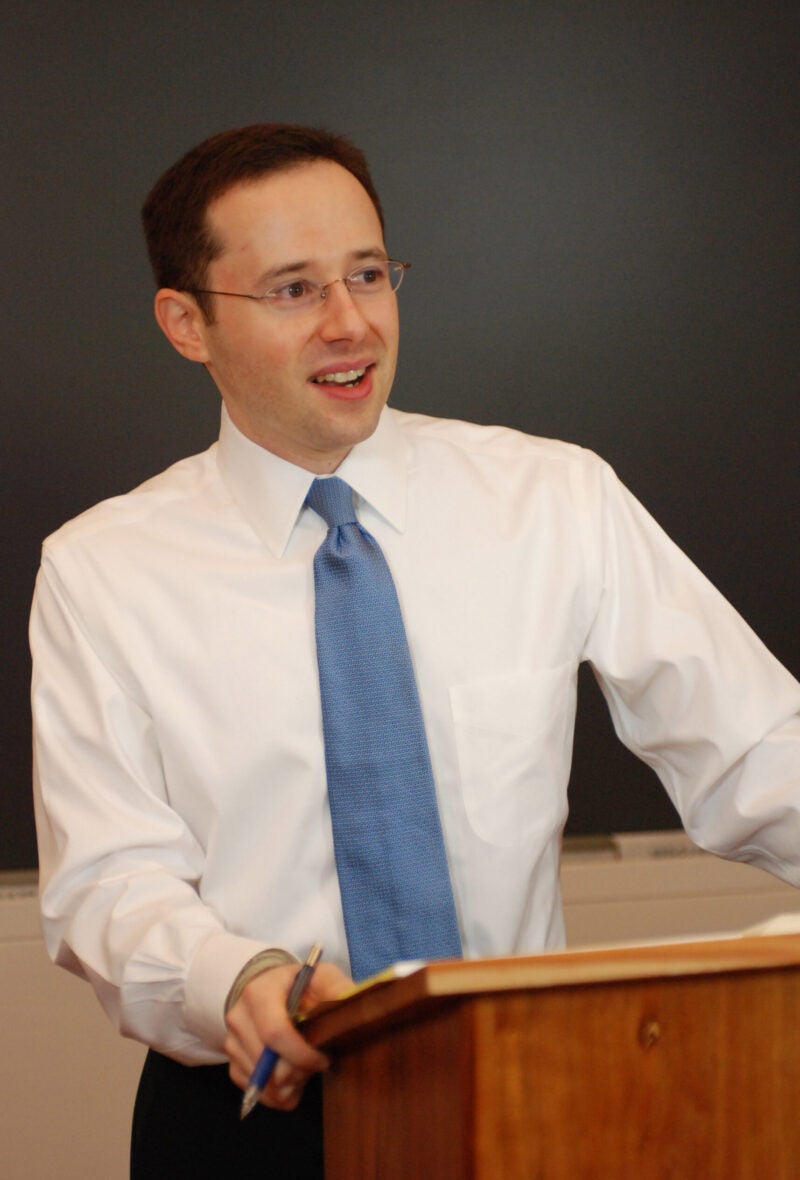
Robert H. Sitkoff, the John L. Gray Professor of Law at Harvard Law School, chaired the committee that drafted the Uniform Directed Trust Act (UDTA), which the Uniform Law Commission (ULC) approved July 19, 2017.
The UDTA addresses the rise of directed trusts, a structure in which a “trust director” — a person other than a trustee — has a power over some aspect of the trust’s administration. The UDTA provides clear, functional rules that settle difficult questions about how to divide fiduciary power and duty between a trust director and a trustee, allowing a settlor to freely structure a directed trust while preserving key fiduciary safeguards for beneficiaries. The UDTA also provides sensible default rules for a variety of matters that might be overlooked in the drafting of a directed trust, including information sharing among trustees and trust directors, the procedures for accepting appointment as a trust director and the distinction between a power of direction and a non-fiduciary power of appointment.
The impetus for developing this measure, Sitkoff said, was an evolution from traditional trust structures in which a trustee or multiple trustees administer a trust to contemporary structures naming one or more non-trustees to serve various functions like directing investments or distributions. This shift gave rise to a question surrounding the fiduciary duties of these non-trustee actors.
The committee Sitkoff chaired brought together commissioners from various states, trust banks, trust lawyers and academics for a two-year process of iterating on, and re-drafting, the measure.
Now that the ULC has approved the act, it has been promulgated to the states to be enacted. Sitkoff said he expects the act to be introduced into state legislatures across the country in upcoming sessions. ULC staff will coordinate and assist enactment efforts across the country, and members of the committee will likely be called to testify before state legislative bodies as part of the process.
In conjunction with his work drafting this act, Sitkoff is collaborating with the committee’s Reporter and Yale Law School Professor John Morley on two papers about the directed trust act. One is directed toward practitioners, Sitkoff said, and discusses details of the act and why it is useful. The other is a scholarly article that investigates why this shift in the structure of trusts has occurred. Sitkoff suggested the change may be rooted in an increased desire for specialization among individuals involved in the various functions of trust administration, such that a single trustee’s expertise would be inadequate.
An expert in wills, trusts, estates, and fiduciary administration, Sitkoff was the youngest tenured professor to receive a chair in the history of Harvard Law School. His work has been published in leading scholarly journals such as the Yale Law Journal, Stanford Law Review, Columbia Law Review, Journal of Law and Economics, and Journal of Empirical Legal Studies. He is the lead author of Wills, Trusts, and Estates (Aspen 10th edition, 2017), the leading American coursebook on trusts and estates. He also is the editor of the Wills, Trusts, and Estates abstracting journal of the Social Science Research Network and is an Academic Fellow of the American College of Trust and Estate Counsel.
An active participant in trusts and estates law reform, Sitkoff serves under Massachusetts gubernatorial appointment as a Uniform Law Commissioner. Within the ULC, he is Chair of the Drafting Committee for an Act on Directed Trusts and a liaison member of the Joint Editorial Board for Uniform Trusts and Estates Acts, the principal oversight body for all uniform law activity pertaining to trusts and estates.
He previously served as a member of several other drafting committees for uniform trusts and estates acts and as the Reporter for the Uniform Statutory Trust Entity Act (last revised 2013). Within the American Law Institute, Sitkoff is a member of the Council, the governing body of the Institute, and he serves on the Council’s Projects Committee. He is currently an Adviser for the Restatement of Charitable Nonprofits and for the Restatement (Third) of Conflict of Laws. He previously was a member of the consultative groups for the Restatement (Third) of Trusts and the Restatement (Third) of Property: Wills and Other Donative Transfers.
Established in 1892, the Uniform Law Commission provides states with models for nonpartisan legislation that brings clarity and stability to critical areas of state statutory law. Among the commission’s many contributions are the Uniform Commercial Code, the Uniform Probate Code, and the Uniform Trust Code.
